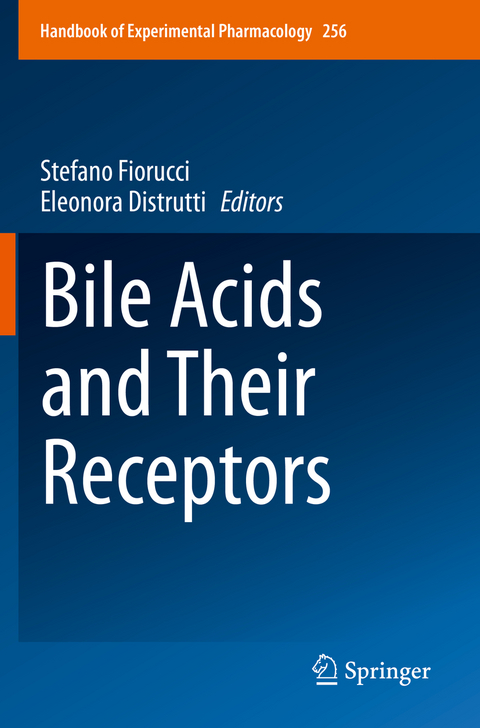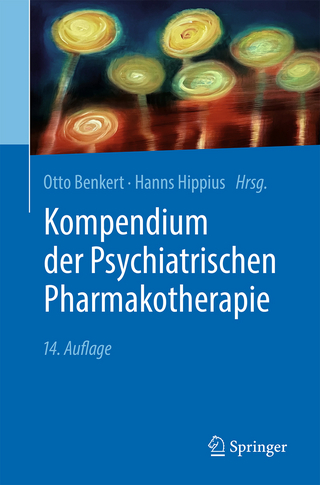
Bile Acids and Their Receptors
Springer International Publishing (Verlag)
978-3-030-22007-5 (ISBN)
Preface.- Part 1. Bile acids as signaling molecules and their receptors.- 1. A short history of bile acid pharmacology.- 2. Bile acids activated receptors: a review of GPBAR1 (TGR5) and other G-protein-coupled receptors.- 3. Bile acid activated receptors: a review of FXR and other Nuclear receptors.- 4. The intestinal enterokine fibroblast growth factor 15/19 in bile acid metabolism.- 5. Signaling from intestine to the host. How bile acids regulate intestinal and liver immunity.- Part 2. General pharmacology of bile acid activated receptors and their ligands.- 6. Modeling of bile acid activated receptors as a tool for pharmacological development.- 7. Chemistry and pharmacology of GPBAR1 and FXR selective agonists, dual agonists and antagonists.- 8. Non steroidal FXR ligands: current status and clinical applications.- 9. Intestinal selective FXR agonists and their potential in treating liver and metabolic diseases.- Part 3. Bile acids and their derivatives as drugs.- 10. UDCA, Nor-UDCA and T-UDCA: a review of their mechanisms of action and clinical applications.- 11. Chenodeoxycholic acid: an update on its therapeutic appplications and safety profile.- 12. Obeticholic acid: a review of its mechanisms of action and clinical applications.- Part 4. Bile acid activated receptors as therapeutic targets.- 13. Targeting FXR in cholestasis.- 14. FXR agonists for the treatment of NASH and other metabolic disorders.- 15. Targeting bile acids activated receptors in bariatric surgery.
| Erscheinungsdatum | 22.09.2020 |
|---|---|
| Reihe/Serie | Handbook of Experimental Pharmacology |
| Zusatzinfo | X, 378 p. 57 illus., 37 illus. in color. |
| Verlagsort | Cham |
| Sprache | englisch |
| Maße | 155 x 235 mm |
| Gewicht | 593 g |
| Themenwelt | Medizin / Pharmazie ► Medizinische Fachgebiete ► Pharmakologie / Pharmakotherapie |
| Medizin / Pharmazie ► Pharmazie | |
| Schlagworte | Bile acids • Glucose metabolism • G protein coupled receptors • hepatology • Lipid metabolism • Liver steato-hepatitis (NASH) • Nuclear receptors |
| ISBN-10 | 3-030-22007-9 / 3030220079 |
| ISBN-13 | 978-3-030-22007-5 / 9783030220075 |
| Zustand | Neuware |
| Haben Sie eine Frage zum Produkt? |
aus dem Bereich


